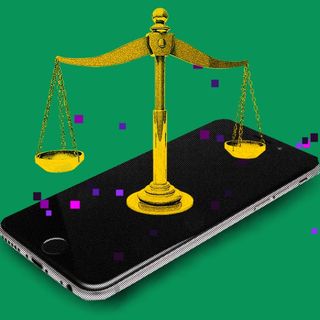
CNET Was Quietly Publishing AI‑Authored Articles
The AI wrote under the byline “CNET Money Staff” — misleading readers and writers, and adding to fears around job security and credibility.

American technology news outlet CNET was recently found to be quietly publishing articles written by an Artificial Intelligence (AI) assistant. This was first discovered by Twitter user and online marketer Gael Breton in a post on the social media platform. The news website seems to have been employing the services of an advanced artificial intelligence program to write articles since November 2022. Articles written by the program include financial explainers on “What is Compound Interest?” and “How to Cash a Check Without a Bank Account?”, and were attributed to “CNET Money Staff.” It was only when one clicked on the byline to know more that they were told by the website that the article “was generated using automation technology and thoroughly edited and fact-checked by an editor on (CNET’s) editorial staff.”
After Breton’s discovery and other publications’ reports on this practice, CNET released a disclosure where they admitted to using artificial intelligence for the last couple of months. The news website calls it an experiment to answer for themselves “important questions about how information will be created and shared and whether the quality of the stories will prove useful to audiences” that have arisen with the arrival of sophisticated artificial intelligence writing programs, such as OpenAI’s ChatGPT. This explanation offered by CNET, however, is inadequate and leaves out some glaring concerns about the ethics surrounding the issue.
Among those concerns is CNET’s decision to make articles written by their AI assistant(s) appear on first glance as articles written by humans. There have been earlier instances of news agencies employing AI technology to reduce the burden from their human writers. The Associated Press, for instance, openly discloses its use of AI to write earnings reports. In another example, The Washington Post famously used AI while covering the Rio Olympics in 2016. What makes these publications stand out from CNET is their decision to be open in their use of AI right from the beginning. What CNET did, instead, was to bury the information about their use of AI under a drop-down that would only appear to those who cared to probe. To others, the attribution of the byline to “CNET Money Staff” would signal that the piece was written by a human or a group of humans. It was only after they were already found to be employing these technologies did CNET add an explicit disclosure — but the damage to trust is arguably done.
Experts have previously flagged that AI is trained on datasets that are not neutral — biases and stereotypes embedded in the data automatically creep into the AI. Despite editorial fact-checking, this raises concerns about the lack of human judgement involved in the writing process.
Related on The Swaddle:
AI Music Is Here. Can It Change the Future of Art?
The other glaring ethical concern with CNET’s use of AI, is reflective of a larger fear of AI technology replacing human employees. As a former CNET employee noted in a tweet, “this is so incredibly disappointing and disheartening, but it’s not surprising. What other choice do you have when you lay off all your talented and loyal writers.” Nathan Grayson, a video game reporter with The Washington Post tweeted, reacting to the incident. “… aggregation + explanation performed by AI will doubtless result in lower-quality work and fewer jobs. A loss for everyone.”
These reactions hint at the ongoing tussle between human creative professionals and AI programs. Writers and artists are worried that AI programs will take over their jobs, leaving them without any work. Amid an ongoing economic downturn, companies are incentivized encouraged to cut costs. With AI programs such as the ones used by CNET filling the shoes of human writers, it becomes easier for corporations to do away with writers and other creative professions — leading to greater precarity and, arguably, alienation from their own work in the process.
It might not be possible for humans to completely obfuscate technology and AI from influencing — and shaping the future of — art, music, writing, and other creative pursuits. If used meaningfully, AI may even assist and help enhance the work of creative professionals. In an earlier report, for instance, The Swaddle noted how musician Holly Herndon successfully created an AI program, Holly+, that allowed her to reach creative milestones she would otherwise not have, due to the limits of her physicality.
Attempts such as Herndon’s, or that of The Associated Press, could help forge meaningful relationships between AI and creative professionals. On the other hand, ethically shifty use of AI with the intent of replacing human workers only adds to anxiety about AI taking over jobs, rather than starting meaningful conversations about the uses of AI.
Amlan Sarkar is a staff writer at TheSwaddle. He writes about the intersection between pop culture and politics. You can reach him on Instagram @amlansarkr.
Related


World’s First “Robot Lawyer” Will Soon Defend a Human in Court
